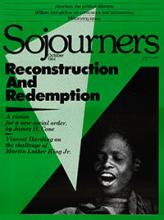The righteous will rejoice when he sees the vengeance;
he will bathe his feet in the blood of the wicked.
Men will say, "Surely there is a reward for the righteous;
surely there is a God who judges on earth."
—Psalm 58
It has lately come to pass that America has entered upon a dark age. This is, I discern, also the reality for other post-industrial technocratic societies. It is, I believe, an authentic dark age; that is, a time in which the power of death is pervasive and militant and in which people exist without hope or else in pursuit of transient, fraudulent, or delusive hopes.
It is not merely an episode of passing malaise, nor only an interlude of economic or cultural or political depression, though it has some such aspects. It is an era of chaotic activity, disoriented priorities, banal redundancy. Creativity is suppressed; imagination has been lost; nostalgia is superficial and indulgent. Society suffers massive tedium. There is very quick resort to violence, usually of overkill dimensions. People become frantic about their personal safety and concentrate solemnly on their own survival. The infrastructures of great institutions crumble.
For those who consider that there is a God, there is widespread suspicion of abandonment. It is a period marked by intense animosity toward human life and, indeed, intransigent hostility toward all of created life. It is a time within itself persuasive of the truth of the biblical description of the Fall. It is a prosperous period for death. It is, in short, a dark age.
Read the Full Article

